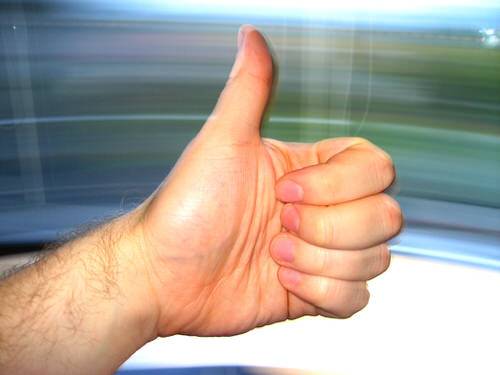
Editor’s Note: This is the last installment of a 3-part series covering Len Kendall’s abstinence from the “Like” button for a month.
If you haven’t been following along, in April I decided to commit myself to a simple behavioral experiment. I pledged to not “like” anything on or off of Facebook for a month, no matter how tempted I was (and believe me, I was tempted often).
My hypothesis was that at the end of this 30 day cycle I would be free of likes and that my detox period would be over. That isn’t the case. I still actively have to stop myself often from hitting that button, and it troubles me quite a bit. It was so simple and I did it for so long that it has burned into my internet muscle memory far more severely than I had anticipated.
I’ve learned several things along the way, but when I started this trial I wanted to answer one primary question:
Who exactly is benefitting the most from me hitting the like button?
While this experiment didn’t provide me with a direct answer to this question, it did force me to think long and hard about the probable ones. I’ve concluded that the following parties benefit from those billions (yes billions) of likes each day:
- Me: I’m not going to claim I get no value. Facebook has an algorithm that shows me people and information that I’m more interested in based on my like behavior. It’s not always spot on, and it irritates the shit out of me when I see this kind of stuff, but nonetheless it has a smart engine that shares timely content from people I care about.
- Brands: Likes feed brands who are trying to understand how they can refine their content distribution (copy, timing, targeting). They also increase the visibility of branded content through all sorts of Edgerank-y goodness. The fact of the matter is, I don’t care about making my favorite brands better marketers. I care about my favorite brands continuing to make products that I like. In other words, these likes don’t help me.
- Facebook (Part 1): Facebook makes the majority of its revenue from selling data. Yes, that manifests as selling ads, but in reality the company is selling the data that drives who sees ads and who buys them. Every single time I hit “like”, even if it’s on a friend’s baby picture, Facebook is growing its data stockpile that is being refined for their advertising customers. Sure, you could claim I’ll see more relevant ads if I help Facebook understand my tastes, but ultimately these likes don’t help me.
- Facebook (Part 2): When I give my friends likes, a little Pavlovian red flag goes off in their browser windows and it pulls them back into Facebook. There they spend more time, see more ads, and see more ads, and see more ads. While directly my likes may help my friends’ important posts rise to the top, it also trains them to crave likes and potentially augment their sharing behavior to earn them more likes. Again, these likes don’t help me.
Above are just four benefits yielded from “like” behavior. The obvious problem is that only 25% of the these items are benefitting me. And that’s being generous since I didn’t list off countless other beneficiaries. Call me selfish, but the ROI of the like button isn’t high enough for me to continue using it. Therefore, I plan to continue abstaining from it.
Although I started this experiment around a single element of Facebook, it’s led me to question the value of the many services the social network provides. Facebook has in many ways become the “big box” store of the internet. And while I do shop at such places in real life for certain commodity items, I don’t really want to go there for all my many specialty needs. I don’t want to speak for anyone else, but I personally don’t want a big-box internet experience. For me, the web is about discovery, being bombarded with choice, and finding niche experts.
Refraining from likes has been a trivial experiment. I know that there are far more important behavioral issues online worth exploring (cyber bullying, crowdfunding, and citizen journalism just to name a few), but I hope that this small example of personal reflection on digital habits encourages you to do the same. Think about how you’re spending time on the internet, who its benefitting, and what’s worth testing in your own digital world.
And don’t like this post. I really mean it this time.
Lead image via Flickr user Djenan, CC 2.0
















